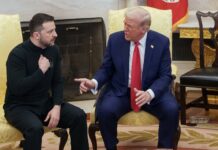The Economic Community of West African States (ECOWAS) is currently grappling with one of its most significant challenges since its establishment in 1975. Four of its 15 member states have been suspended due to military coups, and now three have expressed their desire to withdraw from the bloc entirely. Insecurity, economic hardship, and widespread corruption are among the major issues plaguing the regional bloc.
Initially, ECOWAS was founded to foster political and economic integration among member states. It implemented a common external tariff, promoted freedom of movement between member states, and established various political institutions such as the ECOWAS Parliament and the West African Health Organization (WAHO), etc,.
However, the West African regional bloc is now facing an existential crisis. Following a series of coups and coup attempts in several member states, Mali, Niger, and Burkina Faso have announced their intention to leave ECOWAS and form their own bloc, named the Sahel Federation.
The grievances towards ECOWAS extend beyond military leaders to citizens of West African nations. This discontent was evident in countries where coups occurred, with many citizens expressing frustration not only with the ousted governments and French influence but also with ECOWAS.
To address the concerning trend of military coups, ECOWAS must confront the major issues faced by its member states:
- Insecurity in West Africa:
Terrorism has plagued many West African nations, resulting in tens of thousands of casualties and millions displaced. Military juntas frequently cited growing insecurity as a reason for their coups, criticizing the lack of support from their governments and from ECOWAS in combating terrorism.
- Economic Hardship:
The economic difficulties exacerbated by the pandemic and disruptions to global supply chains have left many West Africans struggling. Poverty remains widespread, and poor business environments hinder stable employment opportunities. Despite ECOWAS’s aim of economic integration, intra-regional trade is hampered by ineffective coordination and infrastructure deficiencies.
- Government Corruption and Inefficiency:
Widespread corruption and inefficiency among member states hinder economic integration efforts. Lack of investment in connectivity projects and trade facilitation further exacerbates the problem.
- Waning Democratic Institutions:
Democratic institutions in member states face challenges, with accusations of vote rigging leading to distrust among opposition parties and voters. This erosion of democratic processes contributes to instability within the region.
- Foreign Influence:
Recent coups have underscored tensions between African nations regarding French and Russian influence. The expulsion of French troops from some countries following coups highlights the shifting geopolitical dynamics in the region, with Russian involvement becoming increasingly apparent.
Addressing these issues is crucial for ECOWAS to regain stability and effectively fulfill its mandate of promoting integration and development within West Africa.










